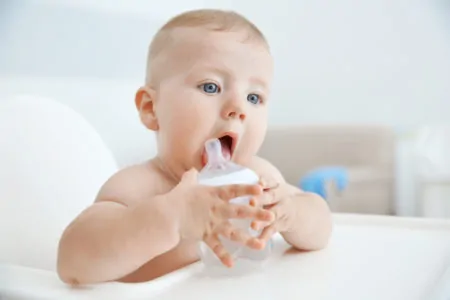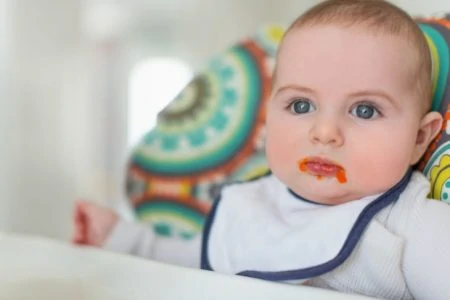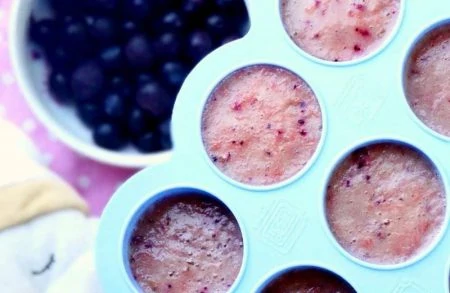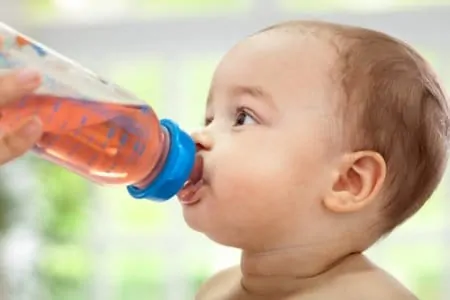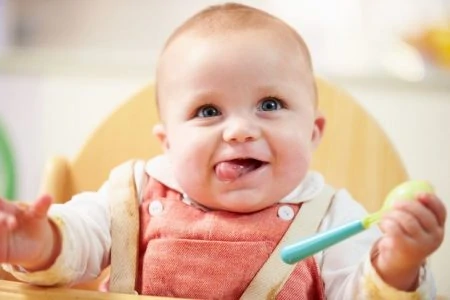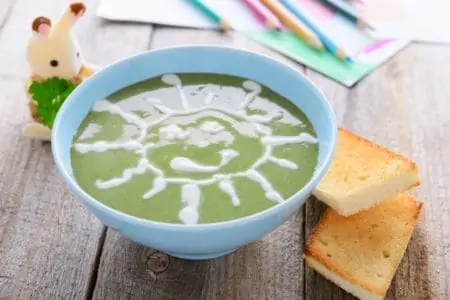Water is life. We need it to survive and thrive. But for the tiniest humans, the rules are a little different. Giving your baby water too early isn’t just unnecessary; it can actually be dangerous.
Introducing water too soon can mess with your little one’s feeding schedule. In serious cases, it causes a system imbalance known as water intoxication.
It is normal to wonder about hydration, especially when the summer heat kicks in. You might even feel pressure from well-meaning relatives to give the baby a bottle of water. Don’t stress. We are here to walk you through exactly when and how to hydrate your baby so they stay healthy and happy.
Key Takeaways
- Wait until your baby is around 6 months old and starting solids before introducing water.
- Breast milk or formula provides 100% of the hydration your baby needs before the 6-month mark.
- Start small with just a few sips in an open cup to practice oral motor skills, not for hydration.
- Giving water too early can lead to malnutrition or water intoxication, so stick to milk until they are ready.
When Can Babies Have Water?
You need to be careful about timing. Pediatricians recommend waiting until you start your baby on solids, which is usually around the six-month mark (1). Even if your little one tries solids at 4 months, hold off on the water until they hit 6 months.
Before this milestone, your baby does not need extra fluid. Breast milk and formula are over 80% water. They provide all the hydration and nutrition your infant requires.
How to Introduce Water
Some babies love their first sip of cool water. Others might make a face and spit it out. Both reactions are totally normal.
When you are ready to start, try these methods:
- Open Cup: This is excellent for oral development. Hold a small cup to their lips and let them take tiny sips.
- Straw Cup: Weighted straw cups help babies learn to suck and swallow liquids other than milk.
- Bottle: Since they already know the motion, this is often the easiest transition.
Once your little one gets the hang of it, encourage them to hold the container. You can place your hands over theirs to guide the cup to their mouth until they build confidence.
No-spill sippy cups are also helpful for keeping messes to a minimum while encouraging independent drinking.
Water should be an additional fluid, not a replacement for breast milk or formula. In other words, sips of water should be given between meals and regular feedings. I encourage this more during the warmer weather months when maintaining hydration can be more challenging.
Editor's Note:
Dr. Leah Alexander, MD, FAAPHow Much Should My Baby Have?
Water at this age is about practice, not hydration. Their primary source of fluids should still be breast milk or formula.
Here is a general guideline for intake:
- 6 to 9 Months: Offer just a few sips at mealtime. You want them to get used to the taste and the cup mechanics.
- 9 to 12 Months: You can offer 2 to 4 ounces per day in a cup. Serve this during meals to help with digestion.
- 12+ Months: After their first birthday, you can be more liberal. Toddlers should drink about 32 ounces (4 cups) of total beverages daily, including milk (2).
Keep their diet varied with nutritious foods and continue breastfeeding or bottle-feeding to ensure they grow strong.
You can give your baby fruit juice after six months, but it contains a lot of sugar and doesn’t offer any nutritional value. It’s okay as a once-in-a-while refreshment, but it shouldn’t substitute for formula or breast milk. In clinical practice, I discourage giving juice, stating that it can be a treat but it is not a dietary requirement. More nutrition is obtained from eating the fruit itself. Some of the parents who visit my practice say that they dilute juice with water in a variety of water-to-juice ratios. This still gives more sugar than is necessary and can be detrimental to newly erupted teeth.
Editor's Note:
Dr. Leah Alexander, MD, FAAPReasons You Should Not Give Infants Water
1. It Fills Their Tummies
Babies have tiny stomachs. If you fill that space with water, they will feel full without getting any calories. If this happens often, your baby might miss feedings and lose weight. In severe cases, this leads to failure to thrive or malnutrition.
2. It Blocks Nutrient Absorption
Water can change the way the digestive system works in young infants. It may interfere with your baby’s ability to absorb the maximum amount of nutrients from their formula or breast milk (3).
3. Water Intoxication
This sounds scary, and while it is rare, it is serious. A baby’s kidneys are not mature enough to filter large amounts of water plain water quickly.
If an infant drinks too much water, it dilutes the sodium in their bloodstream (4). Since sodium is essential for brain activity, this dilution causes big problems. The body attempts to balance the fluids, which can cause cells and tissues to swell.
Watch for these symptoms of water intoxication:
- Low body temperature (under 97°F).
- Puffiness or swelling in the face.
- Excessive irritability or fussiness.
- Extreme drowsiness or lethargy.
If you notice these signs, seek medical help immediately. Severe cases can lead to seizures (5).
Also, be mindful during bathtime or pool days. Babies explore with their mouths. If they swallow too much pool water, it can cause the same issues. Keep a close eye on them during water play.
Diluting Formula with Water
Never add extra water to formula to make it last longer. It is not safe (6).
Formula is a precise chemical recipe. It contains the exact balance of salts, sugars, and vitamins a baby needs. If you add too much water, you dilute those nutrients. This puts your baby at risk for both malnutrition and water intoxication.
Always follow the instructions on the package. If you are struggling to afford formula, contact your pediatrician or local WIC office for resources rather than stretching the powder.
Preventing Dehydration
If your baby is feeding well and wetting diapers, they are likely hydrated. The real risk comes when they get sick. Illnesses involving vomiting, diarrhea, or fever can drain fluids fast (7).
When babies feel sick, they often refuse to eat. This creates a dangerous cycle.
Watch for these dehydration signs:
- Fewer than six wet diapers in 24 hours.
- Dry mouth and lips.
- Crying without tears.
- Sunken soft spot (fontanelle) on the head.
If you suspect dehydration, call your doctor. They might suggest an electrolyte solution like Pedialyte. Do not just give plain water, as it doesn’t replace the lost salts and sugars.
Types of Water Babies Can Have
Once your baby is over 6 months old, they can generally drink the same water you do.
Here is the breakdown on different water sources:
- Tap Water: Usually safe if your local water supply is monitored. It often contains fluoride, which helps prevent tooth decay.
- Well Water: You should test your well water annually for bacteria and nitrates before giving it to a baby.
- Bottled Water: Convenient, but check the label. Some brands add minerals, while others don’t.
There are several infant waters currently on the market with various amounts of added fluoride. Special fluoridated water is not necessary prior to 6 months of age. If you live in an area with non-fluoridated tap water, your pediatrician will most likely prescribe an age-appropriate fluoride vitamin supplement. Ingesting too much fluoride can result in staining of the teeth (8).
Editor's Note:
Dr. Leah Alexander, MD, FAAPWhat about distilled water? While it is safe for mixing formula, it isn’t the best choice for drinking straight. Distillation strips away beneficial minerals like calcium and magnesium. It is fine occasionally, but regular tap or mineral water is better for a growing toddler.
FAQs
Water Is Life
Hydration is vital, but patience is key. For the first six months, breast milk or formula is all the “water” your baby needs. It keeps them fed, safe, and growing strong.
Once you hit the half-year mark and start solids, have fun introducing a cup. Just remember that it is for practice, not for filling them up.
Keep it simple: Milk first, water second, and always watch for cues that your baby is happy and hydrated.
